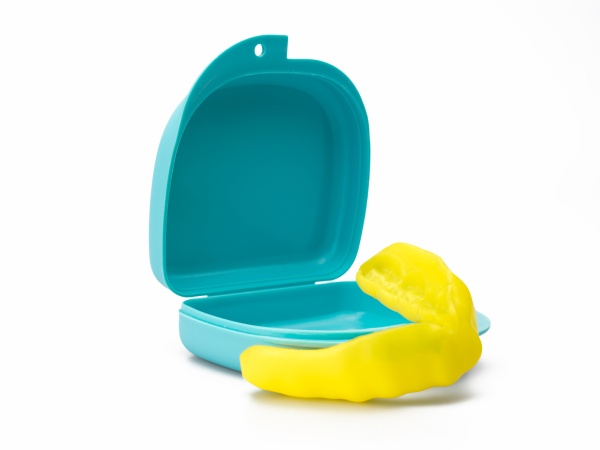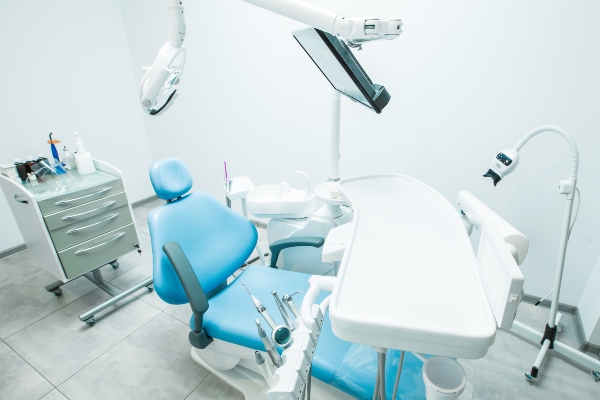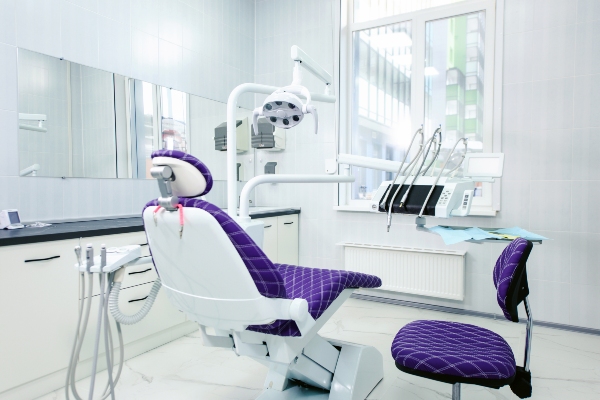What Are Mouth Guards?

Looking for information on mouth guards because you think you might need one? If you grind or clench your teeth, you may need to get a mouth guard to prevent your teeth from becoming damaged. If you participate in sports, wearing a mouth guard will lower your chance of suffering any sport-related dental injuries. According to the American Dental Association, it is important for mouth guards to be safe, but to be effective, they also have to be used.
About mouth guards
Learning more about the types of mouth guards available will help you choose one that is right for you. The three main types include ready-to-wear mouth guards, boil-and-bite mouth guards and custom-made mouth guards. Ready-to-wear mouth guards can be bought over the counter and because they are a one-size-fits-all, this type of mouth guard does not offer many wearers a comfortable fit.
Boil-and-bite mouth guards are also bought over the counter and are placed in boiling water in order to soften the plastic to fit the shape of the mouth. Custom-made mouth guards are made by a dental professional and offer the most protection.
Mouth guard features
When choosing a mouth guard, there are certain features that wearers should look for that will let them know the mouth guard will do its job properly. These features include a comfortable yet tight fit, a thickness of at least 4mm, have no odor or taste, allow for easy breathing, allow for easy swallowing and allow for normal speech. The bottom line is that a mouth guard should properly fit one’s mouth in order for it to work.
Risk factors that require mouth guards
There are some risk factors that are associated with a higher chance of sustaining a dental-related injury. These risk factors include being diagnosed with bruxism, wearing braces, participating in contact sports, having front teeth that stick out and not having enough lip to cover the front teeth.
Types of dental-related sports injuries
Some of the more common types of dental-related sports injuries someone may incur when not wearing a mouth guard include cuts to the lips, gums, cheeks and tongue, chipped teeth, broken teeth, knocked out teeth and a broken jaw.
Caring for mouth guards
The instructions that come with mouth guards should be carefully followed, as this allows them to last for as long as possible. Basic care instructions include rinsing the mouth guard in soapy warm water after it has been used, using mouthwash to kill germs once a week or so, keeping it out of direct sunlight and storing it in a cool, dry and well-ventilated place when not being worn.
Are you currently in need of a mouth guard?
Whether you grind or clench your teeth or participate in contact sports, it is important for you to protect your teeth so they do not become damaged. If you wait too long to get a mouth guard, you may end up with damage to your teeth, which will need dental treatment to correct.
Are you considering mouth guards in the Delray Beach area? Get more information at https://www.palmbeachdentistry.com.
Check out what others are saying about our services on Yelp: Read our Yelp reviews.
Recent Posts
An emergency dentist provides urgent care for individuals experiencing sudden dental issues that require immediate attention. Understanding what qualifies as a dental emergency can help patients determine when to seek professional help. While some dental problems may seem urgent, others can be addressed with routine care. Whether due to a sudden injury, severe pain, or…
An emergency dentist offers urgent and specialized care for unplanned dental issues, especially when severe pain or sudden trauma requires immediate attention. These situations can feel overwhelming and may raise many questions about what to expect and how to prepare. Therefore, it is good to have a list of questions to ask before arriving at…
An emergency dentist can provide fast and effective treatment for urgent dental issues. Whether a tooth is cracked, knocked out, or severely chipped, immediate care can be vital in helping to prevent further complications. Ignoring a dental injury can lead to pain, infection, or even permanent tooth loss. Therefore, knowing when to seek an emergency…
Oral health myths can often lead to misguided attempts to solve dental problems, potentially making things worse. Emergency and general dentists frequently treat patients who have attempted (and failed) to manage dental emergencies with these quick fixes. Debunking common myths about oral health can save patients time, money, and trouble. Along with that, debunking these…


